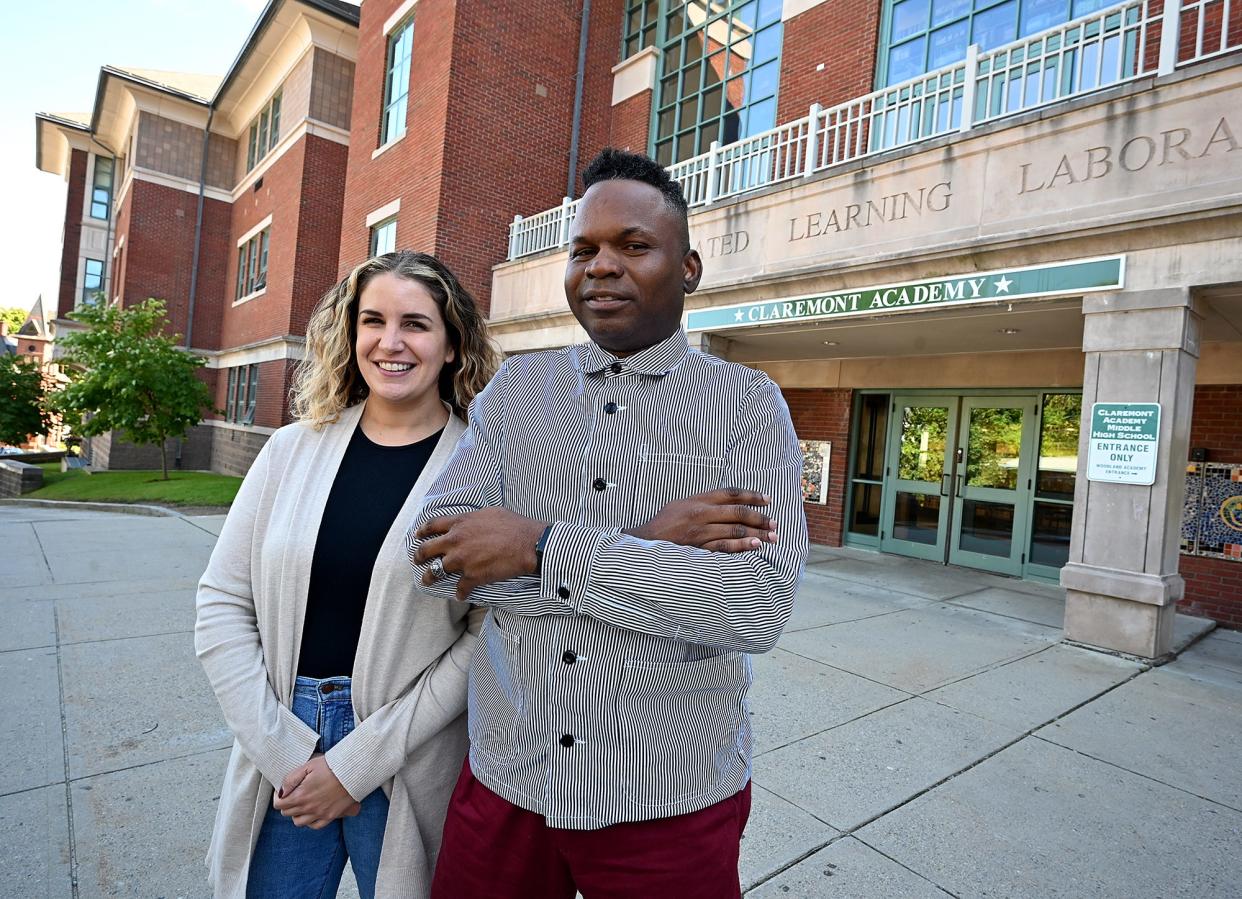Grappling with history: Clark prof assists local educators in teaching about slavery

WORCESTER — To help inform the teaching of American history and in particular the institution of slavery to young students, a local professor is providing middle and high school teachers with advice and practical suggestions.
Raphael Rogers, associate professor of practice in the Department of Education at Clark University, said that teaching about “the troublesome topic of slavery” leaves teachers “nervous, concerned, worried, wary and unprepared.” He believes it has always been a complex and challenging topic in schools but “we have a problematic history and we need to grapple with it.”
Although he works with teachers in Massachusetts, their reaction to teaching about slavery is common among teachers throughout the country. Rogers has collaborated with other Massachusetts educators to create culturally responsive teaching resources for the state’s Department of Education.
“What I found is that people are nervous or step away from dealing with teaching slavery at any grade level — there are landmines out there if you look at the controversies that have emerged.” Earlier this year in June, an advisory panel made up of nine educators in Texas recommended that slavery be referred to as “involuntary relocation.”
Rogers taught secondary school before he came to Clark and, in his experience, young students can definitely understand, “what it means to work for free; what it means to have your family taken away from you.” So leaning into artifacts that represent slavery — not only what the institution was like but its legacy and impact — is a means to help students make up their own minds.
“If you’re teaching the history of this country, there are ways to introduce enslavement as a topic even at the elementary school level but you have to make sure your teachers are prepared at any level to teach this content,” Rogers said.
He believes students should not go through elementary school without knowing that this country had enslaved people, and the depth and examination of that can ratchet up as students advance through history education.
The importance of understanding slavery is complicated by the sociopolitical context, according to Rogers.
“Should it be about celebrating this country in history classes or should it be about getting students to think critically about this country?” Rogers said. Unfortunately, he added, what is happening with some anti-critical proponents is that they push to control the discourse in classrooms.
“I do think people get caught up at times in the content — there is difficult content to deal with at any level but some schools lean into helping students become critical thinkers,” he said.
He worries that folks just want teachers to be blindly supportive of what their politicians want them to do.
“'Just be loyal to this country and just focus on the positives,' but in doing that, critical thinking is lost and you’re not dealing with individual or minority interests at all. History is not just about facts because people use those facts to make an argument,” he said.
Rogers shared the four things he believes teachers must do if they plan to teach about slavery: Explore actual records, examine historical arguments, highlight lived experiences and consider the relevance.
Rogers, who has worked with teachers at Claremont Academy, said, “The lessons that I have developed take a variety of approaches but are all rooted in taking a look at the realities of slavery using historical evidence.”
Facts supported by records
He stresses the importance of understanding basic facts about how long the institution of slavery lasted, how large of a population was impacted, and using authentic records — including census information, notices from slaveholders about runaway slaves, the punishments meted out and personal narratives from enslaved people — to bring home the reality of slavery to students.
While these facts are essential, Rogers and his colleagues are quick to emphasize that the skills learned alongside these facts are the tools that students will need to confront complex issues.
“Drilling down on facts is less important than equipping them with skills and tools to encounter unique circumstances,” said Bowen Lee, a civics teacher at the Nativity School of Worcester, “and being able to break those down along perspective and bias.”
Claremont teacher Helen Ward said, “When kids have a chance to confront our country’s terrible history and talk about institutional racism, it’s difficult and has to be done carefully, but it’s really empowering.”
Ward said that she works with a diverse group of young people and, according to her, “students are hungry for that.” Rogers was Ward’s adviser and professor in the masters in teaching program in 2012.
Ward teaches ninth-grade world history and African American studies for 11th and 12th graders. Referring to the subject matter and how she presents it, Ward said, “We do a critical look of how slavery is portrayed in different primary sources throughout history and how personal bias affects that and I haven’t received any backlash from parents and family yet.”
She added that she feels lucky to work in Worcester and at Claremont because the administration is supportive of what she teaches and gives her the autonomy to do so.
According to Ward, students typically have the understanding that slavery is bad and it happened in America. But the value is in getting them to dig deeper and understand how the biases of historians and politicians can alter how that story is told. She also takes on historiography with Claremont students — how the story of slavery is told and how that changes over time.
Ward confirmed that it is important for young people to grapple with racism and develop an understanding of it.
“To shy away from approaching it in schools isn’t doing anything but preventing young people from learning how society works,” she said.
This article originally appeared on Telegram & Gazette: Clark University professor Raphael Rogers eyes teaching of slavery

